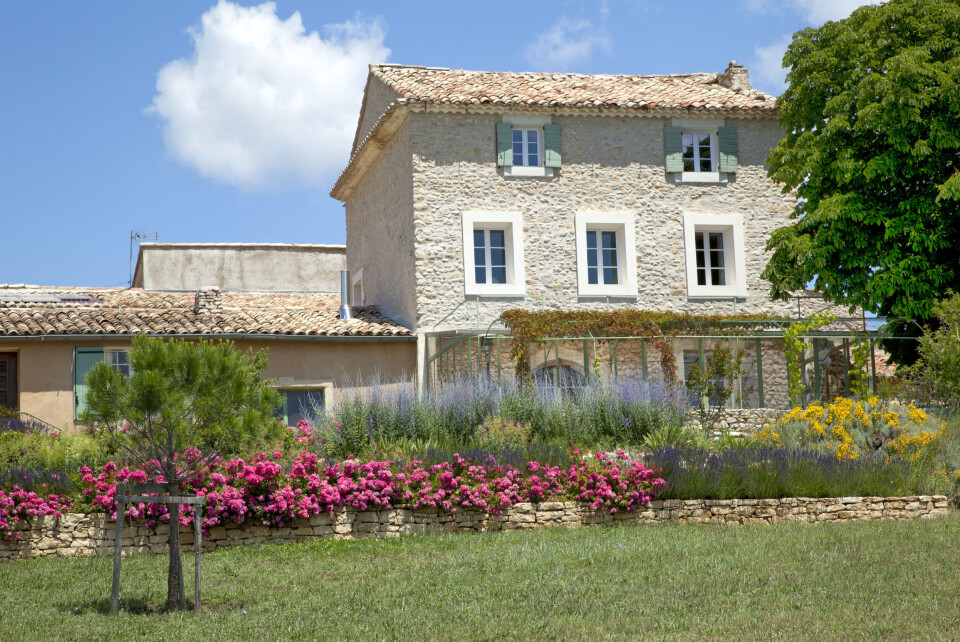-
List: Which departments have seen notaire fees increase – and where will they rise soon?
A third of departments will increase fees to new maximum by May 1
-
Do roof repairs need to be declared to French tax authorities?
Repairs do not usually require planning authorisation to be issued
-
Burglaries: the French cities and towns most - and least - affected
New official stats have been released with significant geographical differences
French property news: Our December 2021 round-up
From how buyers can save money on notaires’ fees, to new charges for people refusing a ‘Linky’ meter and changes to the Pinel buy-to-let scheme… our pick of recent news and updates

The property market in France remains ‘euphoric’ according to industry insiders, meanwhile there are changes to come, including planning applications going online, new fees if you refuse a ‘Linky’ meter and we look at a little-known tip to pay less on ‘notaire fees’.
Planning permission applications go online
From January 1, 2022 it will be possible to apply for planning permission online.
The service will include all planning requests, including déclaration préalable for smaller projects, or requests to demolish or change a building.
Larger communes, of at least 3,500 inhabitants, will also have to process the application online.
The service will not be centralised, although the state is offering several technical solutions to help. Mairies will have to offer a dedicated email address or an online contact form or specific website for the requests.
It will however, remain possible to apply on paper if you prefer.
Taxe foncière predicted to rise linked to inflation
Taxe foncière is likely to rise steeply next year, as a knock-on effect of higher inflation, according to estimates of consumer price index rises by the national statistics body Insee.
The tax, paid by those owning property on January 1 of a given year, is based on a theoretical rental value, the valeur locative cadastrale, which is subject to annual increases based on formulas linked to the consumer price index.
Insee notes that the index rose by 3.4% in mainland France in 2021, which will have an impact on taxe foncière from 2022, as well as on taxe d’habitation for those still eligible to pay (this applies to second homes).
New fees planned for those refusing Linky meters
There are plans to start charging a monthly fee to households which have refused to have the new ‘Linky’ energy meters installed which allow readings to be carried out at a distance.
Energy regulator CRE has proposed an estimated €5.33 charge per month, or almost €64/year, though this is not likely to be in place everywhere before 2025.
The reason given is the extra cost to Enedis, which runs the electricity distribution network, of having to send people out to read the meters in the traditional way.
Property prices continue to rise
The French property market continued to be “euphoric” in the terms used by the Meilleurs Agents – Les Echos monthly index, but at the same time it warned that some signs of weakness are starting to appear.
Experts agree the main motor remains a wish to change home after the Covid lockdowns, with space and greenery the best selling points, so areas away from the large cities continue to drive the overall rise.
The average price per m2 in France on December 1 was €2,997, a rise of 0.3% over a month, according to the index, and up 4.8% since the start of the year.
However Thomas Lefebvre, responsible for the index, said the uneven market in the country meant that it was unlikely that the average price was the result of a bubble which could burst.
City centre flats and houses in Paris actually fell in price by 1% during the month, and 1.8% year on year. They are still beyond the reach of most people, at €10.275 per m2.
Read more: Property prices falling in Paris as buyer priorities change
Outside Paris, it is Poitiers which this month topped the list of the 50 cities in France which saw the largest price rises year on year, with a 10.3% increase.
Lyon, Bordeaux, Nice, Nantes, Strasbourg and Lille saw prices fall month on month by between 0.1% and 0.2%, while still seeing strong rises year on year.
Law to make it possible to change borrower’s insurance at any time
From 2023 it should be possible to change your borrower’s insurance (required by banks when people take out mortgages) at any time.
Under the current rules this can only be done in the 12 months from the original contract signature and after that only once a year at the ‘anniversary’ date of the contract.
A change of law has been voted through by MPs. Commentators say the remaining vote in the Senate is a mere formality, as the government is pushing it through in an accelerated procedure.
The economy minister has said the change is fair and will protect people’s purchasing power.
Tip: buyers can save money by paying estate agent’s fees
A counter-intuitive aspect of French property transactions means that buyers might save money overall by paying the estate agent’s fees instead of the seller.
The benefits of the option, which is however not common in France, result from lower notaires' fees for the transaction.
For more expensive properties, the savings to the buyer if the fees apply to a sale price excluding fees, can be hundreds of euros.
Read more:Buyers could save cash by paying estate agent
Changes to the ‘loi Pinel’
Changes to the ‘Pinel’ buy-to-let investment scheme have been announced by the government, with existing benefits ending at the end of 2022.
Property experts warned however that people should not rush in to buy flats under the scheme before then without doing thorough research into the attractiveness of the flats for tenants and the property rental market in the area.
“Without the fundamentals of buying a property in an attractive area where there is strong rental demand, no tax breaks due to the loi Pinel or the laws, which no doubt, will follow it, will allow the investment to reach its full potential,” Yves Mazin of consultants Verson Patrimoine in Bordeaux, told The Connexion.
Read more:Buy-to-let scheme is changing, but do make a rushed decision to invest
Airbnb signs deals aimed at boosting rural holiday lets
Airbnb has signed a partnership deal to donate millions to restoring heritage buildings in the French countryside, including ones in private ownership, as it seeks to increase its activity in rural areas.
With the pandemic boosting people’s desire for open spaces, Airbnb has also signed a partnership to give money to an association for rural mayors each time a new rural property owner signs up to rent on the platform. The association will use the money to communicate about the partnership and encourage more property owners to sign up.
Read more: Airbnb pledges millions to save rural heritage
Time spent in second homes rising due to the Covid effect
One of the effects of the Covid lockdowns is that people with second homes are spending more time in them, leading to questions about whether it is advantageous to switch the main residence classification from the city property to the country one.
Main residences are charged, on average, 20% less tax than second homes, but people considering the change need to consider if the city home is in an area with high local taxes, which might make the change more expensive than keeping things as they are once a higher proportion of tax is applied to the city home as a secondary residence.
Rent illegally too high in 35% of advertisements for Paris rentals
Research by the city of Paris council and charity the Fondation Abbé Pierre, showed that 35% of advertisements for rental property in the city asked for rents which broke rules designed to limit price rises.
Rents should not be higher than 20% above the median rent for properties in 14 zones of the capital.
The figures show these rules have only had a limited success – landlords are able to ask for higher rents legally if the property has characteristics such as an exceptional view, outside space, or if they are next to a historic monument.
Not all the rule breakers can make these claims but the figures show landlords are willing to risk the fines they would face if they are caught.
France second in Europe for online bookings for short-stay rentals
AirBnB, Booking, Expedia and TripAdvisor (often blamed for high property prices in cities such as Paris) published European tables showing where the most online bookings for short-stay rentals were made.
Overall France was in second position, behind Spain, with Paris the most popular city in Europe. Nice, in ninth place and Marseille in 27th place completed the French podium.
Video cameras in flats on the rise
Video surveillance cameras in the entrance halls and common areas of blocks of flats are becoming increasingly popular, in spite of France having some of the strictest rules on their use in the world.
A camera supplier explained to The Connexion that flat management syndics often call for estimates after incidents of violence or criminal behaviour in the area around the flats.
Cameras cannot film individual flat entrances, balconies or windows, and strict rules apply to who can see images from them, and how long they can be stored for.
Related articles
Property prices in France up 7.4% on average in a year
Buying and selling a home in France: What is the viager system?
Magnificent monument restored in style: Paris' Hôtel de la Marine
























